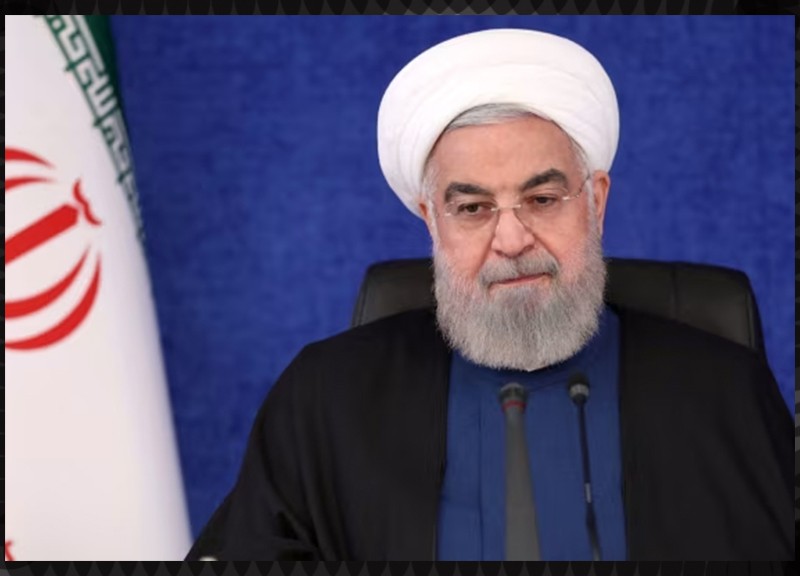
Former president Hassan Rouhani’s disqualification from Assembly of Experts is a significant blow to centrist forces
Bita Ghaffari and Najmeh Bozorgmehr in Tehran - Financial Times
Iran’s former president Hassan Rouhani has been disqualified from the elected council that chooses the next supreme leader, a significant blow to the country’s centrist forces.
The Guardian Council, a constitutional watchdog dominated by hardliners, rejected the application by Rouhani, president of Iran for eight years until 2021, to stand again for the 88-member Assembly of Experts, officials in his office confirmed.
Rouhani staked his political future on a nuclear accord with world powers in 2015, and the ultimate failure of the deal is regarded as a national disgrace by hardliners. The US withdrew from the agreement in 2018 and imposed a strict package of economic sanctions on the Islamic republic.
“No reason was given and it is not clear yet if he will appeal,” an official in Rouhani’s office told the Financial Times on Wednesday. The former president’s official Telegram news channel also reported that the Guardian Council had not approved his “eligibility”.
Iranians vote for who sits in the Assembly of Experts every eight years, with a few hundred senior clerics vying for election this time around. A full list of qualified candidates is set to be released by Friday.
The public vote on March 1 has added significance because Ayatollah Ali Khamenei, the current supreme leader, is 84 years old. As such, this assembly would pick a successor if Khamenei were to die during the next eight years, potentially giving them huge power to determine the future of the country.
President Ebrahim Raisi, the hardliner who succeeded Rouhani, is expected to be cleared to run for the assembly. While no official successors to Khamenei have been named, some analysts have suggested Raisi as a potential candidate.
The absence of Rouhani from the ballot will alarm pro-reform forces, as he is seen by moderates as someone who could exert influence in the leadership selection process.
Yet some reformists argue that even if Rouhani had been allowed to run, political apathy and the public perception that change is unlikely through the ballot box would have hindered his chances.
While hardliners maintain a firm grip on the Guardian Council, Khamenei has called for an inclusive election, hinting at a more open slate of candidates. This public stance has raised the possibility that he could use his ultimate power to reverse Rouhani’s disqualification. Rouhani has sat in the Assembly of Experts for three consecutive terms since 1999, including while he was president.
“All political groups with various political, economic and cultural tendencies should be represented in elections,” Khamenei said in a speech this month.
Iran has only had two supreme leaders since the Islamic Revolution of 1979. Khamenei was chosen as the country’s ultimate religious authority in 1989 upon the death of Ayatollah Ruhollah Khomeini, the first supreme leader.
Iran will also hold parliamentary polls on March 1. The Guardian Council initially approved only 30 reformist and moderate candidates out of about 11,000 allowed to compete for 290 legislative seats, reformists say. A reassessment of disqualifications is pending.
Widespread disqualifications in the 2020 parliamentary elections deflated voter participation to 42 per cent, the lowest of any vote under the republic. Turnout in the 2021 presidential election, which brought Raisi to power, was 48 per cent.
Before his disqualification, Rouhani used a rare public speech this month to accuse hardliners of seeking absolute power by excluding opponents. He emphasised the importance of a free and fair election as a tenet of the Islamic republic, criticising hardliners for minimising voter turnout in their pursuit of electoral dominance.
“I know the ruling minority favours neither a maximum turnout nor competition. Rather, they want voter apathy, so the same minority can prevail,” he said, adding: “History will judge how the Guardian Council acts.”














